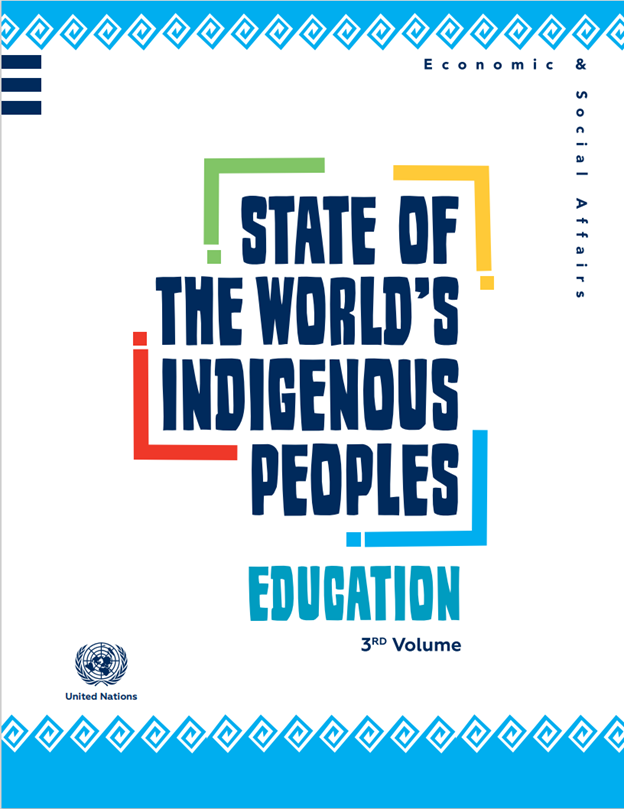Publications
Displaying 1 - 10 of 31
UN General Assembly Reports on Social Development |
Publication |
The 2030 Agenda for Sustainable Development sets out a universal plan of action to achieve sustainable development in a balanced manner and seeks to realize the human rights of all people. It calls for leaving no one behind and for ensuring that the Sustainable Development Goals (SDGs) are met for all segments of society, at all ages, with a particular focus on the most vulnerable—including older persons.Preparing for an ageing population is vital to the achievement of the integrated 2030 Agenda, with ageing cutting across the goals on poverty eradication, good health, gender equality, economic growth and decent work, reduced inequalities and sustainable cities. Therefore, while it is…
Social Development Briefs |
An important step towards meeting the 2030 Agenda’s aspiration of leaving no one behind is to identify who is being left behind and from what. Hoping to contribute to this discussion, the recently released Report on the World Social Situation 2016 (United Nations, 2016) examines group-based inequalities, with the focus being mainly on the disadvantages faced by youth, older persons, persons with disabilities, racial and ethnic minorities and migrants. The report’s analysis shows that disparities in access to education, health care, infrastructure and employment as well as inequalities in political participation are pervasive and symptomatic of…
Flagship Reports |
This action plan builds on the momentum and spirit of the 2014 World Conference on Indigenous Peoples and to this end will promote partnership and collaboration between the UN system, civil society organizations, and multilateral bodies such as regional development banks and human rights special procedures and commissions.This system wide action plan will contribute to the fit for purpose agenda by ensuring stronger linkages between the normative and operational work of the United Nations, increasing coordination and coherence in addressing the rights of indigenous peoples. It calls for strengthened United Nations senior level engagement, encouraging work with Member States in a…
Social Development Briefs |
With its central pledge to leave no one behind, the historic and ambitious 2030 Agenda recognizes that development will only be sustainable if it is inclusive. Promoting inclusion is fundamental to achieving a socially, economically and environmentally sustainable future.
No single set of policies or strategies is applicable across all countries and in all contexts to tackle exclusion and promote inclusion. Instead, Governments should bring a stronger equity lens to policy-making. Successful examples point to several imperatives to address the structural causes of exclusion and social injustice.
A universal approach to social policy, complemented by special or targeted measures The…
Social Development Briefs |
The 2030 Agenda’s pledge to leave no one behind demands that progress towards the Agenda’s goals and targets be faster among the most disadvantaged social groups. Without quicker improvements among those who are lagging further behind, the systematic disparities described in the Report on the World Social Situation 2016 (United Nations, 2016) will not decline. While the data needed to monitor progress in all goals and targets for each group that is disadvantaged or at risk are not systematically available, the existing data illustrate the complexity of establishing whether some people are being left behind. Much depends on contexts and on the indicators used to…
Publication |
In Africa, as in other regions, persons with disabilities are disproportionately likely to live in poverty and, too often, lack access to education, health care, employment opportunities, housing, social protection systems, justice, cultural expression and participation in political life. The ability of persons with disabilities to participate in society is often frustrated because physical environments, transportation and information and communications systems are not accessible.In this context, a Toolkit on Disability for Africa has been developed by the United Nations Department of Economic and Social Affairs (UNDESA), Division for Social Policy and Development (DSPD). It is comprised of…
Flagship Reports |
Recognizing the gaps in analytical research on the situation of indigenous peoples, the Permanent Forum on Indigenous Issues called for a report on the state of the world’s indigenous peoples. The Forum believed that this report will help dispel the myths and inconsistencies about indigenous peoples, and demonstrate their unique identity and traditions, as contributions to the world’s bio-cultural diversity. In response, DESA issued the State of the World’s Indigenous Peoples in 2009. This was the first global, authoritative report by the UN system to focus on indigenous peoples, with the 2014 second edition focusing on Indigenous Peoples’ Access to Health.
The third edition has been…
UN ECOSOC Reports on Social Development |
UN ECOSOC Reports on Social Development |
 Welcome to the United Nations
Welcome to the United Nations






